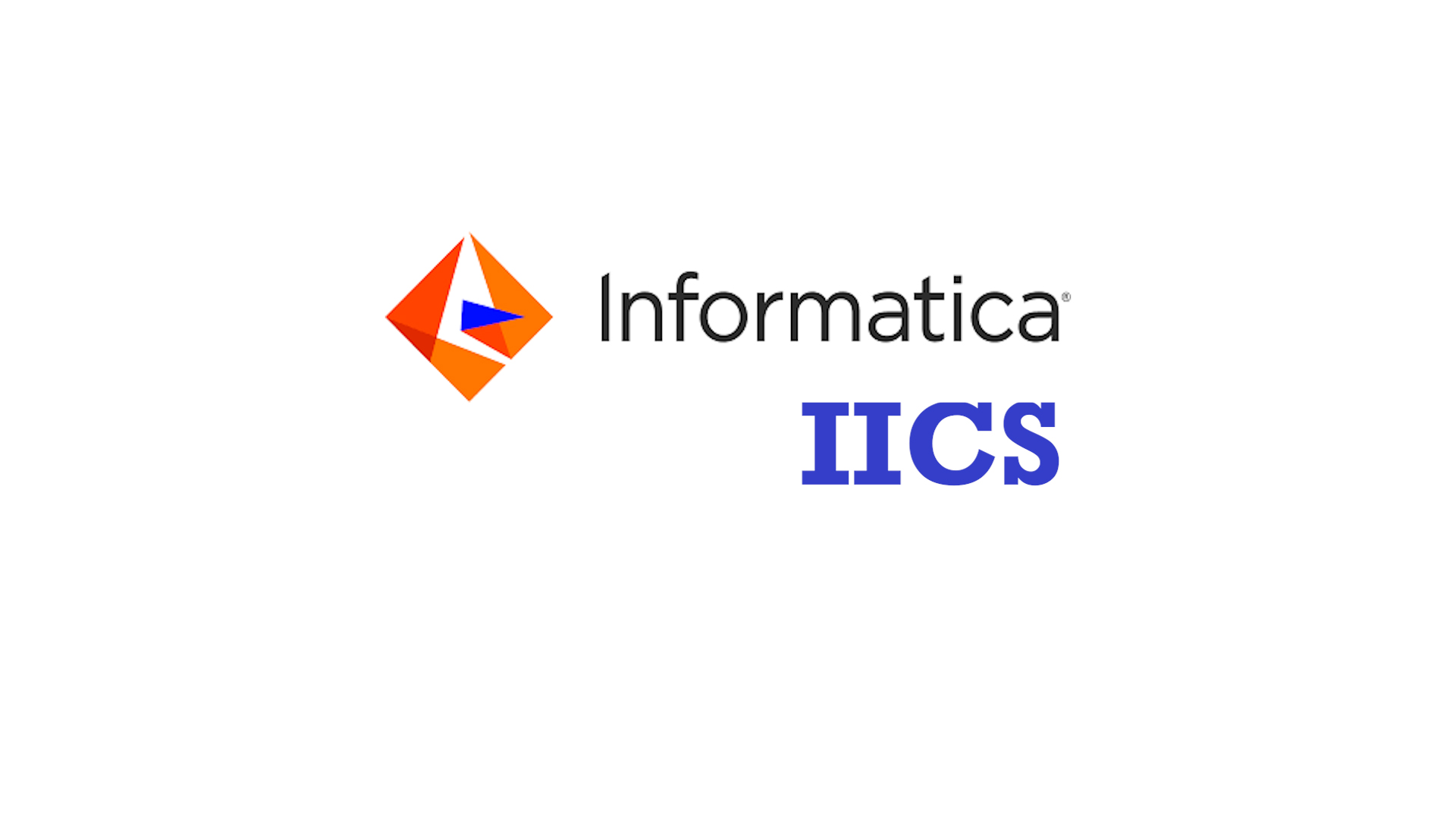Accelerating Data Modernization with Informatica: A Roadmap to Cloud Transformation
In today’s digital age, data is the lifeblood of every organization, driving innovation, operational excellence, and improved governance. The need for seamless data flow, security, trust, and ethical management is paramount to power digital innovation. This blog delves into the key insights from Informatica, a leader in data management, and its Intelligent Data Management Cloud (IDMC). We’ll explore how Informatica’s solutions are revolutionizing data management, focusing on cloud migration and data modernization.

Harnessing the Power of IICS
Informatica’s Intelligent Cloud Services (IICS) plays a central role in modernizing data warehouses and data lakes. This cloud-native enterprise architecture accelerates time to value, improves performance, and minimizes costs and risks.
One of the key benefits of IICS is its ability to accelerate time to value. Traditional data management processes can be time-consuming and resource-intensive. IICS automates many of these processes, allowing organizations to derive insights from their data faster using its component Intelligent Data Management Cloud (IDMC). This agility is crucial in a rapidly changing business environment.
Informatica’s Intelligent Cloud Services (IICS) is a game-changer in modernizing data management. IICS is a cloud-native enterprise architecture that streamlines data processing, ensuring that organizations can make the most of their data assets.

Moreover, IICS enhances data processing performance. With the power of the cloud, data can be processed more efficiently, leading to faster analytics and better decision-making. Organizations can make real-time decisions based on up-to-date data, which is invaluable in competitive markets.
IICS also minimizes costs and risks associated with data management. The cloud-based approach reduces the need for extensive on-premises infrastructure and maintenance. It also enhances data security and reliability, reducing the risk of data breaches and errors.
Informatica’s IICS is a cloud-native enterprise architecture that accelerates time to value, improves performance, and minimizes costs and risks. It can help organizations modernize their data warehouses and data lakes, and shift toward flexible and collaborative data ecosystems.
Simplify Modernization with the Migration Factory

The Migration Factory is a critical component in the modernization journey. It simplifies the complex process of transitioning from legacy systems, such as PowerCenter, to cloud-native solutions like IICS.
This sophisticated tool is designed to streamline cloud migration by automating the conversion of assets. It takes the complexity out of the migration process, ensuring a smooth and efficient transition to the cloud. This means that organizations can minimize disruptions to their operations and quickly start reaping the benefits of cloud data management.
The Migration Factory also provides a safety net for organizations by reducing the risk associated with migration. It ensures that data and processes are migrated accurately and securely, minimizing the potential for data loss or errors. This is essential for maintaining business continuity and protecting sensitive data.
Informatica’s Migration Factory simplifies cloud migration and automates the conversion of assets from PowerCenter to IICS, ensuring a seamless and efficient transition to the cloud.
Driving Change in the Automotive Sector

Informatica’s solutions are helping the automotive industry navigate its data revolution by unifying data estates, making data more accessible and valuable, and migrating from PowerCenter to a cloud-based data infrastructure. This is essential for developing autonomous, electric, and connected cars.
The migration from PowerCenter to a cloud-based data infrastructure is a central component of this transformation. It enables the brand to harness the advantages of cloud data management, including real-time analytics, predictive maintenance, and improved customer experiences. This shift not only enhances operational efficiency but also allows the brand to offer innovative services and solutions to its customers.
The automotive industry is experiencing a data revolution with the advent of autonomous, electric, and connected cars. A global automotive brand is unifying its data estate, making data more accessible and valuable. The migration from PowerCenter to a cloud-based data infrastructure is a key component of this transformation.
Realizing the Full Potential of Data Modernization
Here we look into how Informatica and its solutions, particularly IICS, unify cloud data across multiple platforms and clouds, fostering greater agility, performance, and time to value while reducing costs and risks. The blog also emphasizes the role of AI-powered systems in intelligent data management automation.

Realizing the full potential of data modernization is a goal that all organizations should strive to achieve. It involves unifying cloud data across multiple platforms and clouds, which, in turn, fosters greater agility, performance, and time to value.
Informatica’s solutions, especially IICS, are instrumental in realizing this potential. IICS serves as a bridge between different data sources and clouds, enabling organizations to operate seamlessly in a multi-cloud environment. This unification is key to maximizing data accessibility and usability.
Greater agility is achieved through the flexibility and scalability of cloud data management. Organizations can quickly adapt to changing business needs and market dynamics. Performance improvements, driven by cloud data processing, ensure that data-driven insights are available in real-time, supporting faster and more informed decision-making.
Reducing costs and risks is another critical aspect of data modernization. By moving to the cloud and leveraging automation through AI-powered systems, organizations can significantly lower operational costs and minimize the risk of data breaches and errors. This cost-effectiveness is particularly important in today’s competitive business landscape.
Compliance with Data

IDMC offers effective data governance including defining data ownership, data classification, and access controls. By implementing these measures, organizations can ensure data privacy and quality. It also supports sharing the necessary documentation to the auditors for demonstrating compliance with data regulations and giving stakeholders and customers the confidence that their data is handled responsibly.
In addition to compliance, mature data governance in IDMC provides a holistic view of data lineage. This is crucial for understanding the origin and transformation of data within an organization. It helps in identifying potential issues and ensuring data quality, ultimately contributing to better decision-making and innovation.
The first step toward digital innovation is compliance with data regulations. Global and local data regulations necessitate mature data privacy, quality, and lifecycle management. To navigate this complex landscape, IDMC provided robust data governance, quality control, and a deep understanding of data lineage to the stakeholders.
Compliance with data regulations is not just a legal requirement; it’s a strategic necessity. In a data-driven world, organizations must ensure they adhere to various data regulations to protect sensitive information and maintain their reputation. Here IDMC’s framework supports maintaining the data compliance regulations for end to end data life cycle.
Operational Excellence

AI-powered data management offers a game-changing advantage. With the ability of IDMC’s box support to automate data quality checks, identify anomalies, and optimize data processing, organizations can achieve a higher level of operational excellence. This, in turn, leads to better decision-making and greater agility in responding to market changes.
Furthermore, operational excellence is not limited to internal processes. It extends to market expansion and innovation. By harnessing the power of data, organizations can identify emerging trends, customer preferences, and opportunities for product and service improvements. The insights gained from well-managed data provided by IDMC can drive innovation and support strategic growth initiatives.
Data management is the cornerstone of operational excellence. It opens new doors for innovation and market expansion. IDMC’s AI-powered data management can significantly enhance data quality and orchestration, enabling businesses to make informed decisions and derive valuable insights from their data assets. Operational excellence is the key to staying competitive in today’s fast-paced business environment with the support of IDMC’s end-to-end operational framework for operational processes.
Improved Governance

Informatica’s IDMC helps organizations build trust by offering a centralized platform for collaboration and data governance.
Collaboration is a crucial aspect of improved governance. It enables different departments and teams to work together seamlessly, ensuring that data is used consistently across the organization. IDMC supports this collaboration by providing clear data lineage, which provides a visual representation of how data flows through the organization. It’s a critical tool for understanding data’s journey and making data-driven decisions.
Trust in data is another pillar of improved governance. When data is trusted, it becomes a strategic asset that can drive decision-making and support business initiatives. The IDMC’s data quality and lineage features are instrumental in building this trust. With trustworthy data, organizations can confidently embark on data-driven projects and initiatives.
Collaboration, data lineage clarity, and trust in data are vital for improved governance. IDMC’s robust enterprise data governance framework ensures that analytics insights are accurate and reliable. It fosters transparency and empowers organizations to leverage data as a strategic asset.
Improved governance extends beyond regulatory compliance. It involves creating an environment of trust and transparency around data.
The Power of Cloud

The power of the cloud in data modernization cannot be overstated. Moving data and data management processes to the cloud offers numerous advantages, including scalability, cost-efficiency, and enhanced data accessibility.
Cloud migration is not just a technical shift; it’s a strategic move that enables organizations to harness the full potential of their data. By transitioning to the cloud, organizations can leverage advanced analytics and machine learning algorithms to personalize customer experiences. This level of personalization offered by IDMC is key to staying competitive in today’s market, where customers expect tailored services and products.
Furthermore, cloud-based data management offers the scalability and flexibility needed to optimize operational efficiency. Organizations can quickly adapt to changing data requirements, streamline their processes, and reduce operational costs. Predictive analytics, powered by cloud-based data, enables organizations to make informed decisions and proactively address issues before they impact operations. IDMC SaaS model enables seamless cloud migration for data management.
Modernizing Data Management with Informatica

Modernizing data management involves transitioning from traditional on-premises solutions to cloud-native platforms. Informatica’s IDMC offers a roadmap for this transition, ensuring that organizations can fully capitalize on the advantages of cloud data management.
One key aspect of modernization is the shift toward flexible and collaborative data ecosystems. The IDMC provides a dynamic environment where data can be easily shared and accessed by different teams and applications. This flexibility encourages collaboration and supports cross-functional data-driven projects.
Additionally, the consolidation of data lineage in a single repository is crucial for modern data management. IDMC’s Data lineage framework provides a complete history of data from its source to its consumption. In a cloud-native environment, this lineage can be efficiently maintained and made accessible to all stakeholders. This ensures that data quality, reliability, and transparency are upheld.
Central to this journey of modernization is the role played by Informatica, which signifies a key catalyst in the process of transforming data management and transitioning to the cloud. Through offerings like Informatica’s Intelligent Data Management Cloud (IDMC), businesses can seamlessly navigate the complexities of modern data governance, quality control, and data lineage tracking. By harnessing these tools, organizations can not only ensure compliance with data regulations but also empower themselves to effectively manage, secure, and optimize their data assets.
By embracing the path of cloud data modernization and harnessing the capabilities provided by solutions like Informatica’s IDMC, businesses can unlock the full potential of their data resources. This transformation is not just a technical evolution but a strategic imperative, enabling organizations to remain competitive in the dynamic landscape of the digital economy. In doing so, they position themselves to thrive in an era where data is the lifeblood of innovation and success.
